Bistrita’s first Small Scale Action
Edited on
09 March 2022Bistrita organized the first Small Scale Action on January 20, 2022. The action took the form of a Round Table, organized at the Municipal Cultural Center "George Cosbuc", which is a department of the municipality, and an ULG member.
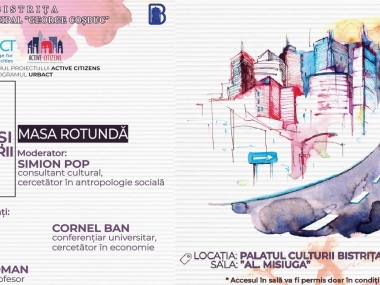
The round table addressed everybody, but in the same time it was kind of dedicated to the young population of the city, as it was entitled: “The small town steals you away? Youth, the city and the culture of participation”. The round table was facilitated by Simion Pop, the representative of the host and the panelists were: Mrs. Miki Braniste - cultural manager and researcher in cultural policy, Mr. Dan Coman - writer and professor and Mr. Cornel Ban - associate professor and researcher in economics.
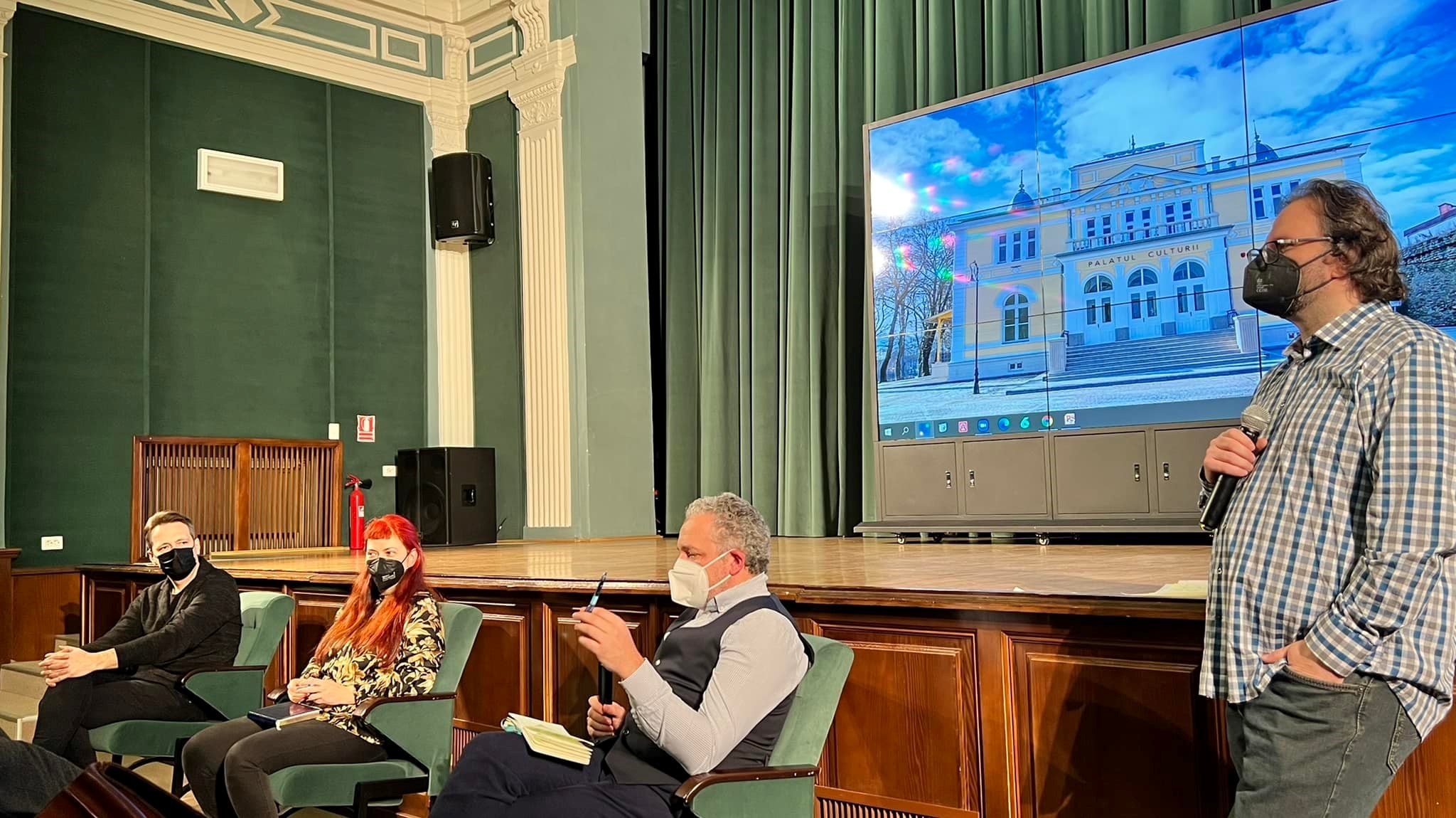 The rest of the ULG members were actively involved in the debate as well, and the Mayor of the city also participated via on-line, as the event was a hybrid, both face to face and on-line, due to the restrictions caused by the pandemic.
The rest of the ULG members were actively involved in the debate as well, and the Mayor of the city also participated via on-line, as the event was a hybrid, both face to face and on-line, due to the restrictions caused by the pandemic.
The premises of the debate initiated from the following concern: Is our city a place where young people can imagine, experience and practice a culture of civic participation and engagement? How can young people participate in changing the city and urban public policies without having to "change" the city simply for another ?
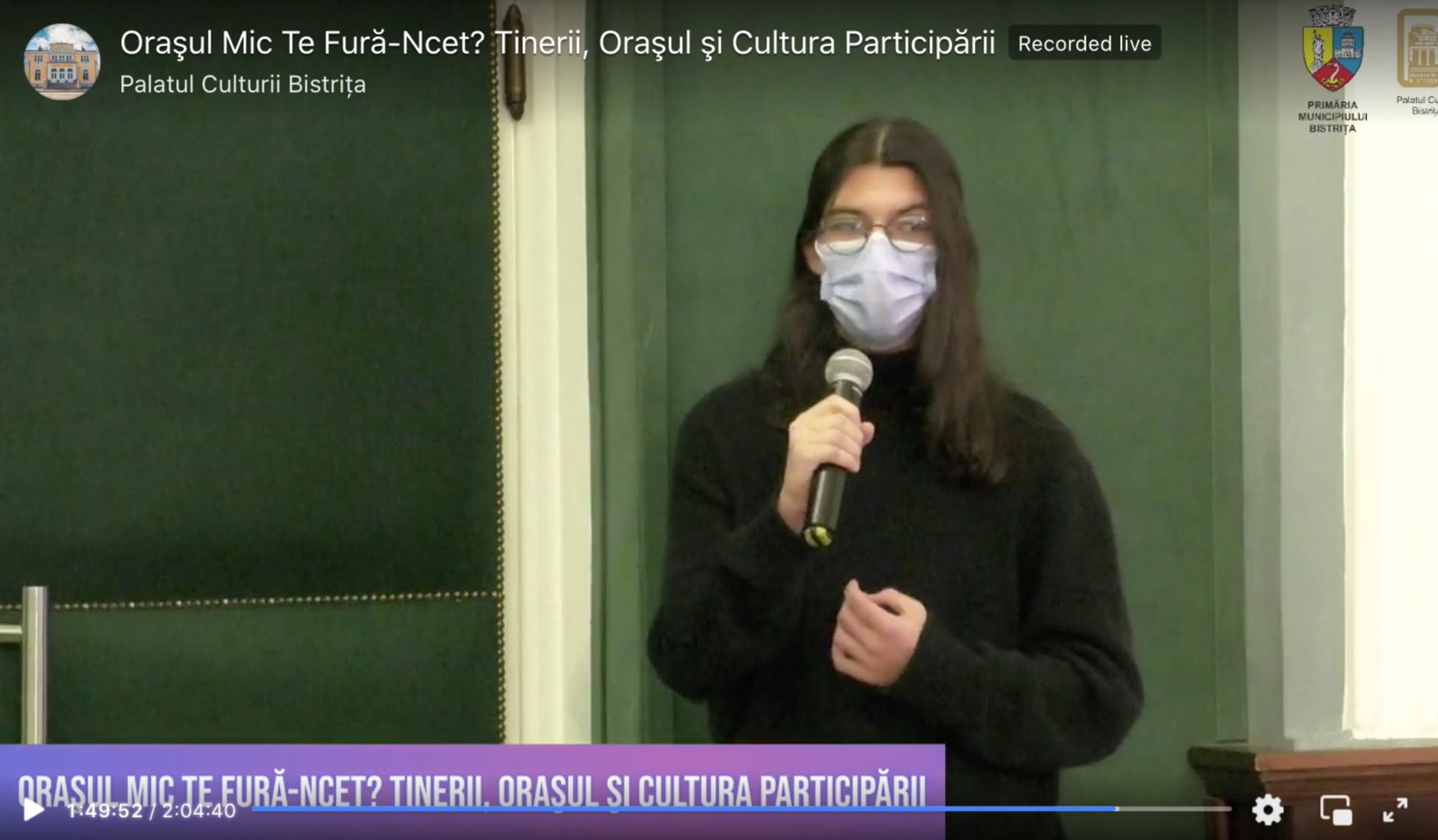 We started from the premise that what we call "culture" and "access to culture" can stimulate a lively, reflective, critical and committed way of imagining and practicing urban living and "good living" - with all the social, economic, ecological, infrastructure - in a city like Bistrita. On the one hand, the events, actions and discourses of the "cultural sector" can stimulate the development of a participatory and inclusive urbanism. On the other hand, at the same time, we must be aware that very often the "cultural sector" through the type of conventional events it promotes misses the chance to stimulate the culture of participation among young people.
We started from the premise that what we call "culture" and "access to culture" can stimulate a lively, reflective, critical and committed way of imagining and practicing urban living and "good living" - with all the social, economic, ecological, infrastructure - in a city like Bistrita. On the one hand, the events, actions and discourses of the "cultural sector" can stimulate the development of a participatory and inclusive urbanism. On the other hand, at the same time, we must be aware that very often the "cultural sector" through the type of conventional events it promotes misses the chance to stimulate the culture of participation among young people.
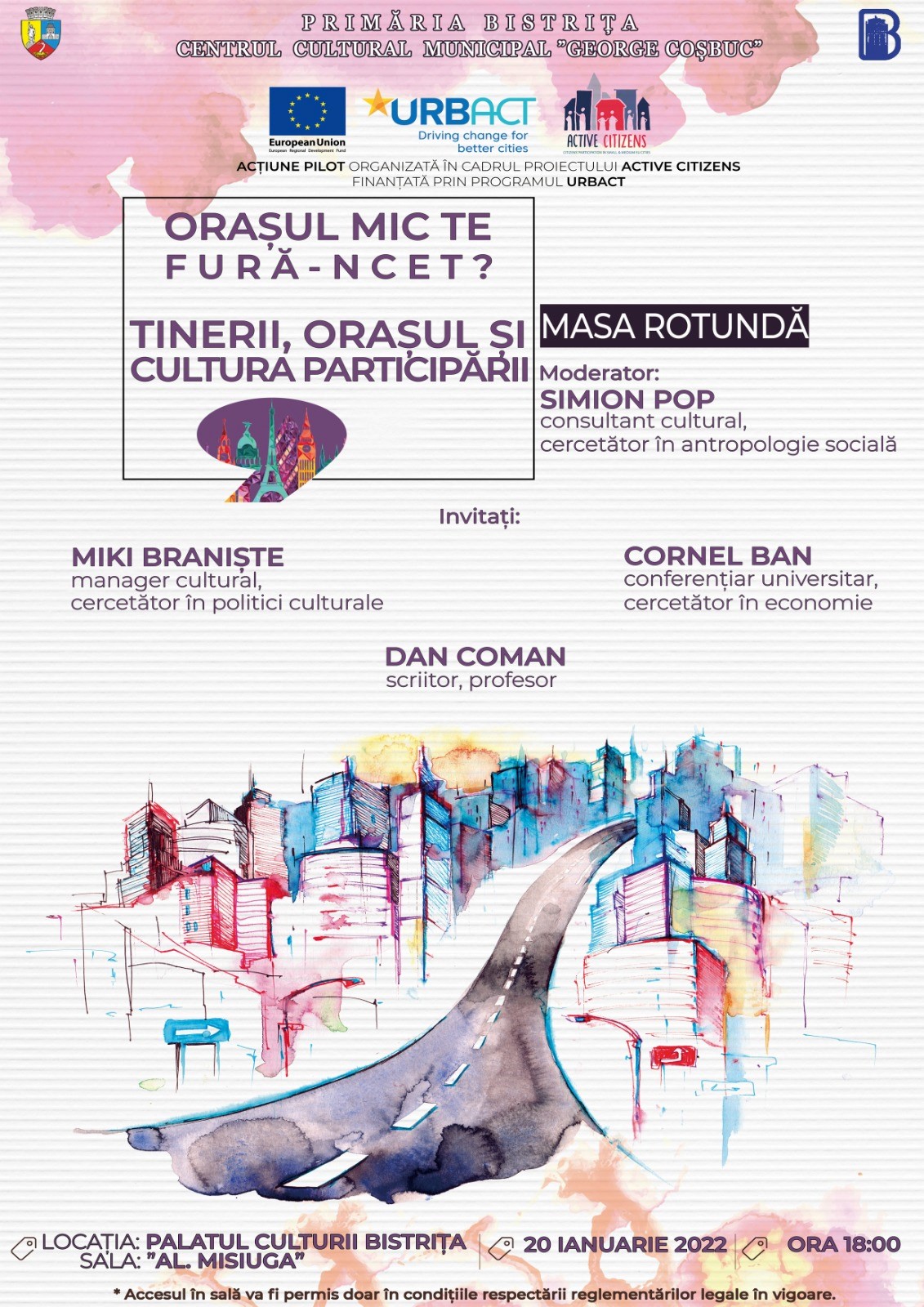
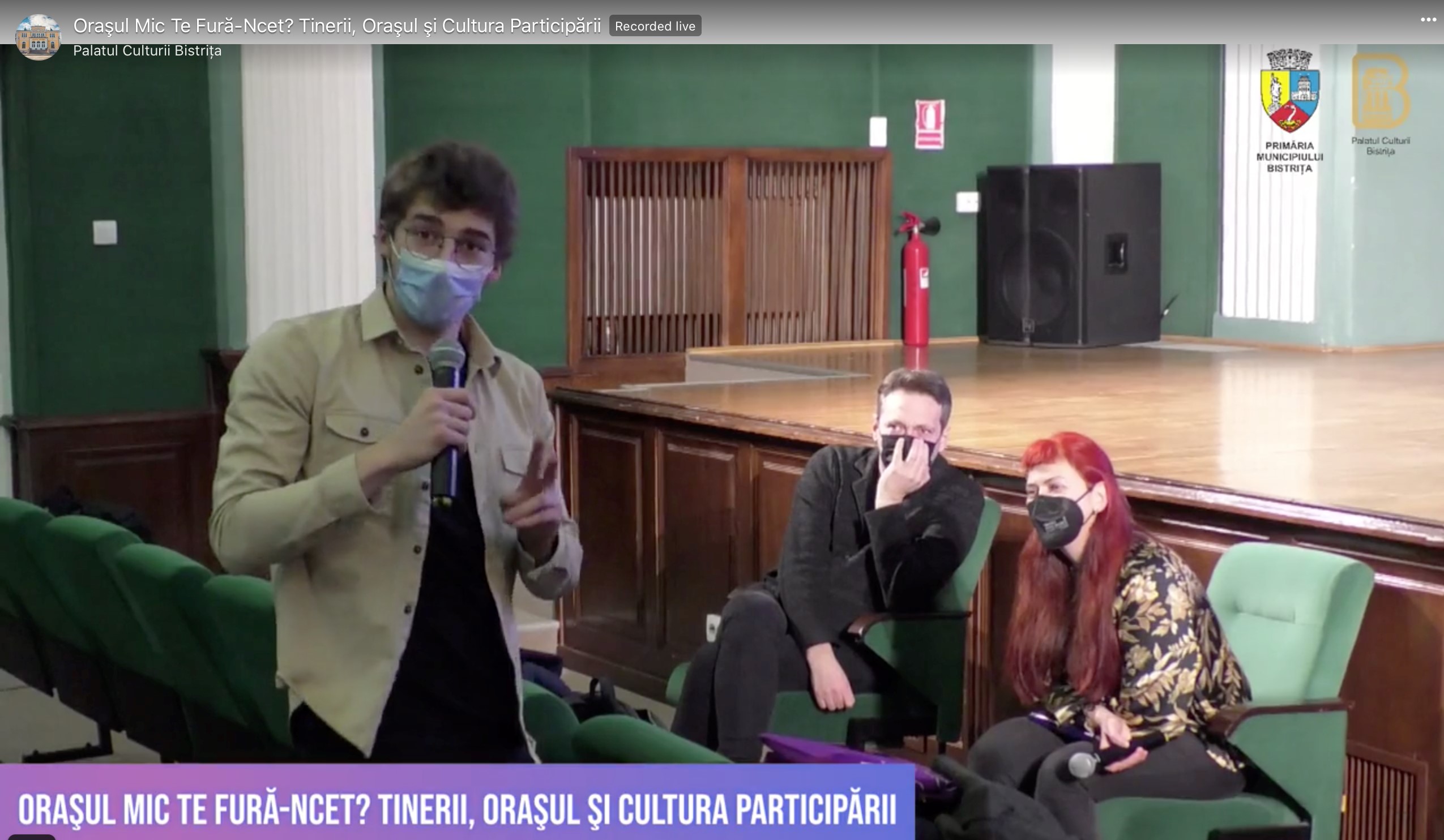 We tried with our guests to discuss this relationship between "urban culture", "youth culture", "cultural sector" and "urban housing" trying to imagine and propose without moralizing "lack of participation" but how too often new types of events, actions, spaces, communities in the culture of the city happen.
We tried with our guests to discuss this relationship between "urban culture", "youth culture", "cultural sector" and "urban housing" trying to imagine and propose without moralizing "lack of participation" but how too often new types of events, actions, spaces, communities in the culture of the city happen.
The conclusion was that it is time to reconsider the urban dynamics of the centers and peripheries, of the "province", of the cultural policies and the urban heritage - material and intangible, in terms of new opportunities that must be used creatively. But for that we need to understand what these opportunities are.
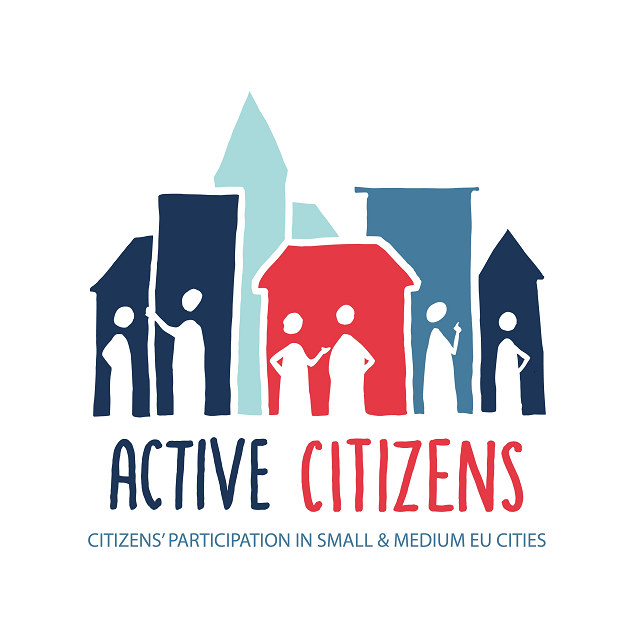 Submitted by Nicolas Castet on
Submitted by Nicolas Castet on
